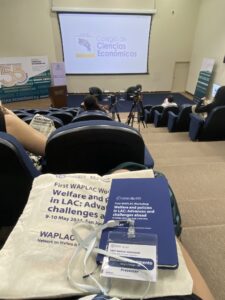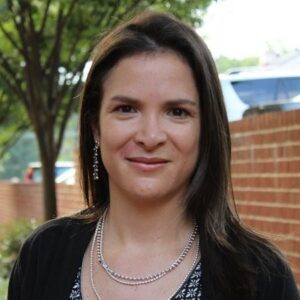
YSI @ WAPLAC 2: Network on Welfare & Policy in Latin American and the Caribbean
YSI Workshop @ WAPLAC 2025
Start time:
December 18
-05
Location:
Pontificia Universidad Católica del Ecuador (PUCE), Quito, Distrito Metropolitano de Quito, 170143
Type:
Workshop

How to attend
Deadline:
Application deadline has passed on 20th July 2025
Speakers

Adriana Camacho
Senior Executive Ph.D. CAF – Development Bank of Latin America and the Caribbean
Local Partners
Description
This project is a collaboration between the Inequality Working Group and WAPLAC, following the success of our joint session in 2024. We are organizing a special YSI panel at the upcoming WAPLAC Workshop 2, which will take place December, 18-19, 2025, in Quito, Ecuador.
Our YSI session will create a dedicated space for early-career researchers to share their work and engage in dialogue with both peers and senior scholars.
We welcome submissions from young scholars in various domains of economics, quantitative social sciences and political sciences are welcome, and in particular on (but not restricted to):
– Tax-benefit systems, redistribution and poverty
– Informal employment, labor markets dynamics and working conditions.
– Welfare programs and their impacts on education and health inequalities.
– Equality of Opportunity and Intergenerational Mobility.
– Perceptions of richness, fairness, income inequality, and wellbeing.
– Political economy, voting attitudes, social unrest and the middle class, and other determinants of societal change.
Contributions focusing on other world regions are also welcome as long as there is a clear application for the context of LAC.
Selected participants will present their work during the conference in Quito and participate in wider WAPLAC discussions. The format will be interactive, with time for feedback, discussion, and networking. This is an excellent opportunity to connect with scholars across disciplines, gain constructive feedback, and become part of an international community focused on critical research on inequality and political economy.
After the conference, we
